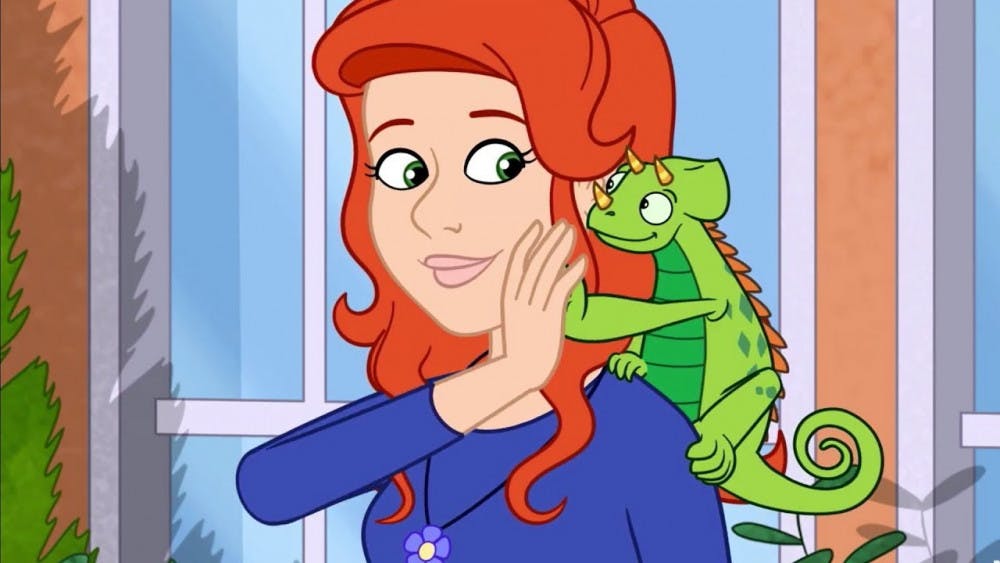by Sarah James
People may believe that millennials are entitled, that we’re never satisfied and always complaining. But I like to think that despite the enormous wall of student loan debt, overwhelming levels of anxiety, and pressure to be politically correct that my generation faces, we really aren’t that hard to please. Just give us an opportunity to relive our childhoods and escape the world we were raised in for a few hours and we’re good to go. And studios everywhere have picked up on this: that the most appealing element to millennials when it comes to the media we consume is nostalgia.
For example, Netflix recently announced that they were rebooting The Magic School Bus. Lily Tomlin returns to reprise her role as the wonderful Ms. Frizzle, but the show itself is centered around her younger sister Fiona Felicity, voiced by the ever fabulous Kate McKinnon. Lin Manuel Miranda redid the iconic theme song, his soothing voice adding warmth to the nostalgia. The animation is bright and clean, and while the characters look a little different than the original series, Ms. Frizzle is still instantly recognizable. The Magic School Bus Rides Again may have been created for today’s youth, to be shown to elementary school kids as a means to help them engage in learning, but let’s be honest, on September 29th when the show hits Netflix, hundreds of thousands of 20-somethings will turn on their televisions and binge watch their childhood.
The Magic School Bus Rides Again has all the elements to make it a millennial’s wonderland. Take something nostalgic from the 90s/ early 2000s, add a couple celebrities that young people worship (like Lin Manuel Miranda), throw in a progressive element (both Frizzle sisters are voiced by gay women), stick it on a streaming service and violá! You’ve got yourself a hit with the kids.
 But why is the younger generation so obsessed and impressed by these simple elements utilized in their media? Why are reboots becoming the new norm as opposed to original stories? Is nostalgia stronger than good story telling?
Maybe it’s because our generation felt like we grew up too fast. Being the first generation to have access to technology throughout most of our lives, we saw and were a part of the transition from a childhood spent outside to a childhood behind a screen. When I was a kid, I spent half my time playing outside with my neighbors and half my time playing video games. I got my first cell phone in middle school, although I didn’t get a smartphone until freshman year of college. Kids now are even more in touch with the digital world than I was and have access to any information at the tips of their fingers. Sometimes it’s nice to reminisce on the times in our lives before social media took over, before we led digital lives, and our attachment to the things that were a part of that era may be more important to us than we care to admit.
Granted, I am definitely going to check out The Magic School Bus Rides Again when it hits Netflix later this month. And as I watch I will be thinking about those days in elementary school where the highlight of my week was when the teacher would show The Magic School Bus for the class. I’ve fallen into this trap of loving nostalgia, and there’s a large part of me that doesn’t want to crawl out of the comfort that memory lane provides. Maybe nostalgia is just escapism at its finest. Maybe reboots of old shows and movies are a studio’s way of reaching out to the millennials and giving them a place to be a kid again for a few hours. Or maybe it’s just an easy and unoriginal way to make money. Either way...
[caption id="" align="aligncenter" width="630"]
But why is the younger generation so obsessed and impressed by these simple elements utilized in their media? Why are reboots becoming the new norm as opposed to original stories? Is nostalgia stronger than good story telling?
Maybe it’s because our generation felt like we grew up too fast. Being the first generation to have access to technology throughout most of our lives, we saw and were a part of the transition from a childhood spent outside to a childhood behind a screen. When I was a kid, I spent half my time playing outside with my neighbors and half my time playing video games. I got my first cell phone in middle school, although I didn’t get a smartphone until freshman year of college. Kids now are even more in touch with the digital world than I was and have access to any information at the tips of their fingers. Sometimes it’s nice to reminisce on the times in our lives before social media took over, before we led digital lives, and our attachment to the things that were a part of that era may be more important to us than we care to admit.
Granted, I am definitely going to check out The Magic School Bus Rides Again when it hits Netflix later this month. And as I watch I will be thinking about those days in elementary school where the highlight of my week was when the teacher would show The Magic School Bus for the class. I’ve fallen into this trap of loving nostalgia, and there’s a large part of me that doesn’t want to crawl out of the comfort that memory lane provides. Maybe nostalgia is just escapism at its finest. Maybe reboots of old shows and movies are a studio’s way of reaching out to the millennials and giving them a place to be a kid again for a few hours. Or maybe it’s just an easy and unoriginal way to make money. Either way...
[caption id="" align="aligncenter" width="630"] Image from Buzzfeed[/caption]
Image from Buzzfeed[/caption]
“Seatbelts everyone!”
Sources: Netflix, Buzzfeed




















